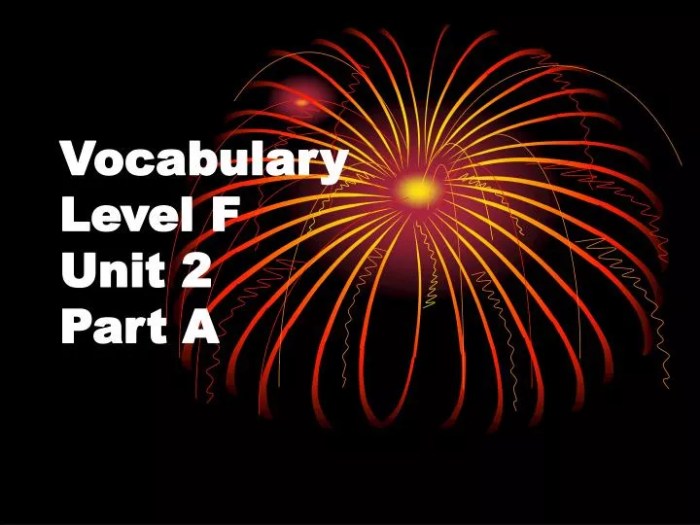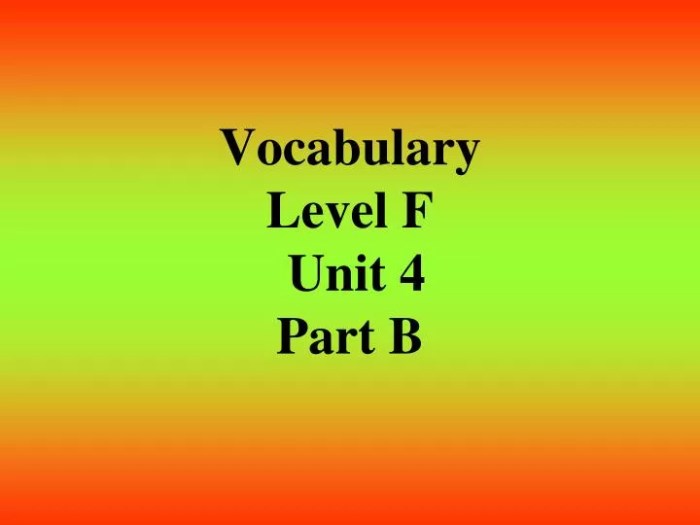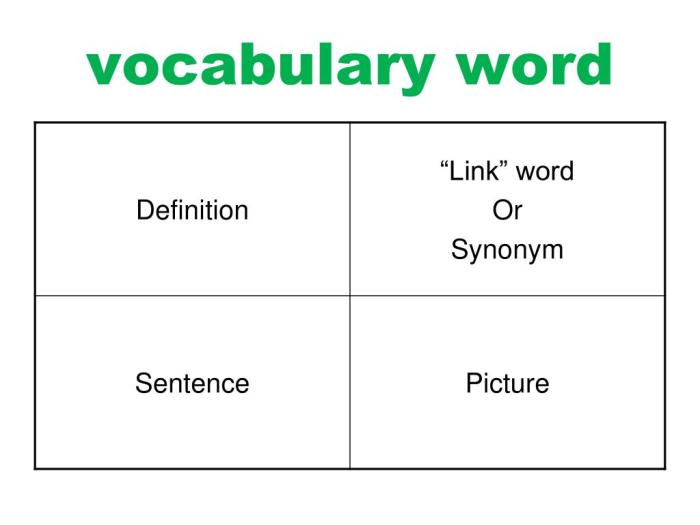Level f unit 3 choosing the right word – Embark on an enriching journey with Level F Unit 3: Choosing the Right Word, where you will discover the profound impact of word choice on the effectiveness of your communication. This unit delves into the nuances of language, empowering you to convey your ideas with precision, clarity, and persuasion.
Throughout this unit, you will explore the factors that shape word choice, including context, audience, and purpose. You will learn techniques for expanding your vocabulary and avoiding common pitfalls in word selection. By mastering the art of word choice, you will unlock the potential to craft messages that resonate with your audience and achieve your desired communication goals.
Understanding the Concept of Word Choice: Level F Unit 3 Choosing The Right Word

In effective communication, choosing the right words is crucial for conveying messages clearly, accurately, and persuasively. Word choice impacts the tone, clarity, and persuasive power of language, influencing the interpretation and reception of messages.
Different word choices can convey different meanings and emotions. For example, “happy” and “joyful” both express positive emotions, but “happy” is more casual and general, while “joyful” is more intense and celebratory.
Factors Influencing Word Choice
Several factors influence word choice, including:
- Context:The situation and purpose of communication determine appropriate word choices. Formal settings require more sophisticated language, while informal settings allow for more casual speech.
- Audience:The knowledge, beliefs, and values of the audience influence word choice. Using terms they understand and relate to enhances comprehension and engagement.
- Purpose:Whether to inform, persuade, or entertain guides word choice. Informative texts use precise and objective language, persuasive texts use persuasive and emotive language, and entertainment texts use creative and engaging language.
Techniques for Choosing the Right Words
Techniques for identifying the most suitable words include:
- Identifying s:Determine the key concepts and ideas in the message and choose words that accurately convey them.
- Expanding Vocabulary:Reading widely and using thesaurus and dictionaries helps expand vocabulary and improve word choice.
- Using Figurative Language:Metaphors, similes, and other figurative devices can enhance clarity and engagement, but use them sparingly and appropriately.
- Avoiding Clichés and Ambiguous Language:Overused phrases and vague language can weaken messages. Choose fresh and specific words that convey precise meanings.
Applying Word Choice in Different Contexts, Level f unit 3 choosing the right word
Word choice is crucial in various communication contexts:
- Writing:Written communication allows for careful consideration of word choice, ensuring clarity, precision, and appropriate tone.
- Speaking:In spoken communication, word choice is influenced by the immediacy and informality of the situation, but clarity and effectiveness remain important.
- Social Media:Social media platforms have their own conventions and limitations regarding word choice, requiring adaptation and brevity.
Tailoring word choice to the specific platform and audience helps create a desired impression and achieve communication goals.
FAQ Guide
What is the significance of word choice in communication?
Word choice plays a crucial role in conveying your message effectively. The words you select can influence the tone, clarity, and persuasiveness of your communication.
How does context affect word choice?
Context is a key factor in determining the appropriate words to use. The setting, audience, and purpose of your communication will influence the words you choose.
What are some techniques for expanding vocabulary?
To expand your vocabulary, consider using thesauruses, dictionaries, and other resources. Engage in regular reading and note down unfamiliar words for further exploration.


